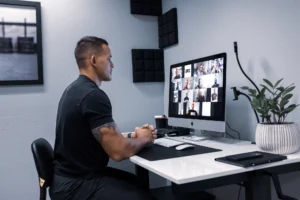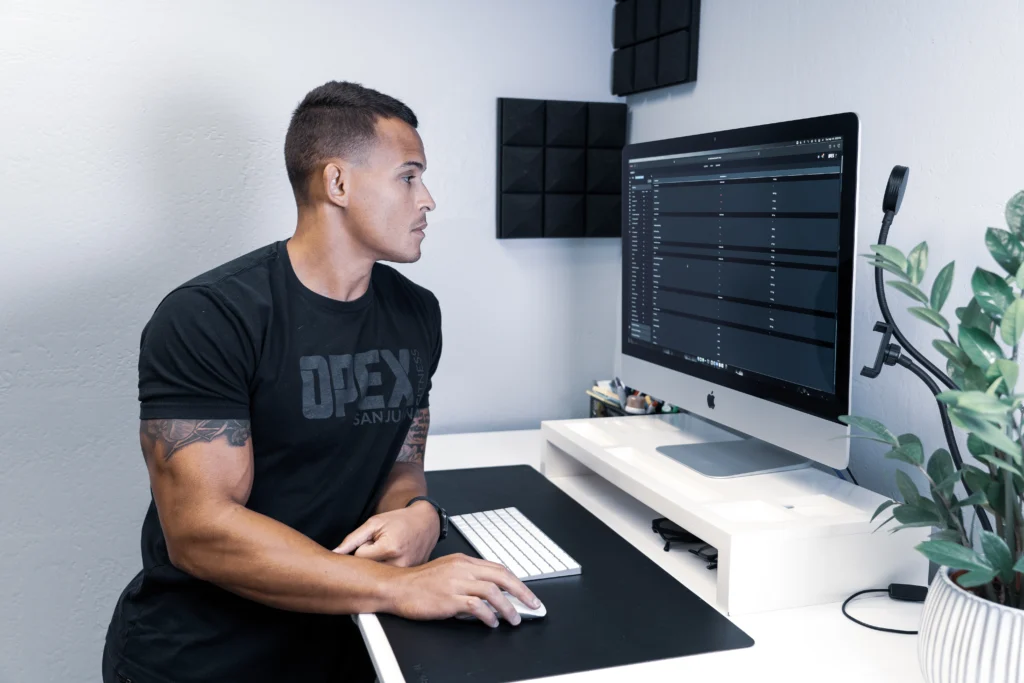
Want to thrive in the competitive world of remote coaching? Here are five tried-and-true strategies honed from over a decade of experience
The landscape of fitness coaching has evolved over the last few years, and remote coaching has become a more viable model for a lot of coaches. As a fitness professional, transitioning to a remote coaching practice or even adding it as a service offering can be both exciting and challenging. At OPEX, we’ve been in the remote coaching game for over a decade. Here are five general strategies from our experience that will ensure you’re well-prepared for this transition.
1) Master the Art of Communication
Compared to in-person, communication becomes even more important in remote coaching as it becomes more obvious when it is missing. Communication in remote coaching is about building connection, trust, context, and understanding without the luxury of physical interactions. Leverage technology to your advantage – video consults with succinct consult notes, in-app messaging, understanding how many touchpoints you have per client per week, and simply having a system around your communication is vital.
It’s not just about staying in touch; it’s about making your interactions meaningful. As we constantly teach in our education here at OPEX, a great coach builds the foundation of their practice on relationships, their client’s why, and understanding what makes them ‘tick.’ Understand not just what your clients are saying but also why they’re saying it. This deep level of understanding forms the bedrock of a successful remote coaching relationship.
2) Individualized Programming
The OPEX method of individual design is crucial in a remote setting. Each client has unique needs, goals, and limitations, which you must consider while designing their programs. Use the data from assessments to create personalized, intentional, and effective programs. Remember, what works in an in-person setting may not translate seamlessly into a remote environment. Adaptability is key – be ready to give your clients a little bit less than what you think they are capable of, especially when you are just getting started. Use exercise selection based on the equipment available to your clients, their individual capabilities, and their goals.
3) Nutrition & Lifestyle Coaching
Lifestyle and nutrition are an integral part of your client’s fitness journey. Although exercise is important, it is not the only thing. Provide guidance on nutrition, sleep, stress management, recovery, and basic lifestyle habits. Educate your clients on how these pieces connect to their unique goals. Most importantly, personalize this advice through nutrition and lifestyle prescriptions with the intention of building healthy, lasting habits that your clients can include in their daily lives.

4) Utilize Technology for Tracking & Accountability
In a remote setting, you can’t physically monitor your clients, making tracking progress a bit more challenging. Reliable software for exercise and lifestyle prescribing and systematizing communication that allows you to run your remote coaching business within will be key. The importance of a software that can do all of these was always something that was important to us at OPEX, one that we had not found, and the main driver behind why we built CoachRx and now use it as our all-in-one coaching software.
5) Continuous Education & Self-Improvement
The field of health and fitness is ever-evolving, and so should your knowledge. While keeping the main truths and principles we know to be true close, stay updated with the latest trends and research. Engage in continuous learning through courses, workshops, and certifications, and last, but certainly not least, experience.
Also, continue to become wiser in your own life beyond your profession as a coach. At the end of the day, you are working with people, so you should understand not only them but the world around you.
Building a remote coaching practice requires more than just understanding fitness and nutrition; it demands an adaptable, client-centered approach. By mastering communication, individualizing programs, integrating nutrition and lifestyle coaching, leveraging technology, and committing to continuous learning, you can create a robust and successful remote coaching practice. Remember, your goal as a coach is about teaching, challenging, supporting, and guiding your clients toward moving further than they currently are in their health journey.
See Carl’s previous column here.
Next column: Why Fitness Coaches Should Practice What They Preach
Carl Hardwick, CEO of OPEX Fitness & CoachRx, is a strong advocate for bringing honor to the coaching profession and raising the value of all fitness coaches. He lectures frequently about program design, business systems, and building a sustainable coaching career. Follow him on Instagram @hardwickcarl and OPEX Fitness on YouTube
